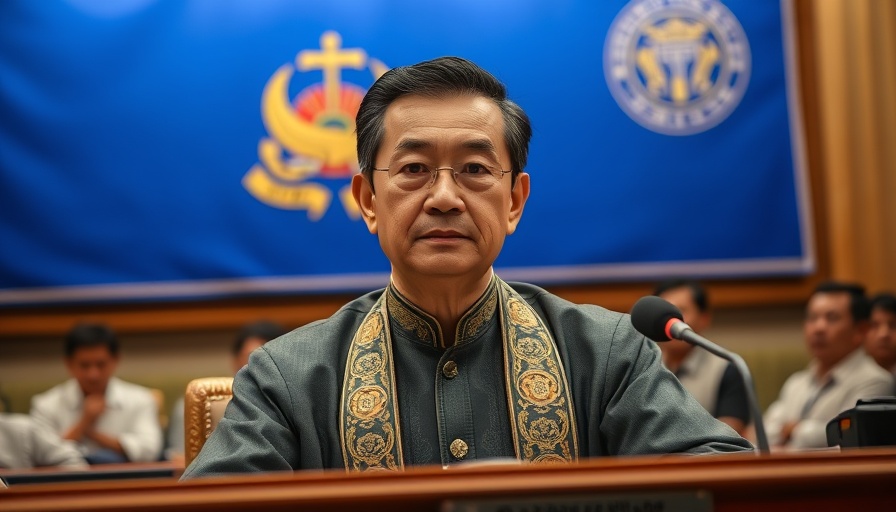
Evaluating President Tinubu's Governance: An Overview
As President Bola Ahmed Tinubu completes two years in office, a closer examination reveals a mixed scorecard reflecting both strides and setbacks in governance. His tenure has been marked by significant reforms, but also by persistent challenges that hint at broader systemic issues within Nigeria's political infrastructure. Understanding these dynamics is crucial as they resonate not only within Nigeria but across the African continent.
In 'Two Years in Office: President Tinubu's Mid-Term Scorecard', the discussion dives into Nigeria's evolving political landscape, exploring key insights that sparked deeper analysis on our end.
Key Achievements: Progress Amidst Challenges
President Tinubu has initiated various reform policies aimed at revitalizing Nigeria's economy, enhancing security, and improving public service delivery. His administration's focus on attracting foreign investment has been particularly evident, with various initiatives aimed at stabilizing the naira and facilitating trade. These economic reforms, if successfully implemented, could set a precedent and serve as a model for other nations within the Africa continent aiming to rejuvenate their economies.
Security Concerns: The Ongoing Battle
Despite these achievements, security remains a paramount issue. Nigeria continues to grapple with terrorism, banditry, and civil unrest. Tinubu's administration has been criticized for its handling of these crises, particularly in the northeastern region, where military response efforts against Boko Haram have been met with controversy. This ongoing struggle highlights the need for cohesive national security strategies that not only address symptoms but also focus on their root causes.
Public Perception: A Divided Nation
Public sentiment towards Tinubu’s leadership is astoundingly polarized. Many citizens express skepticism about the effectiveness of his governance, citing persistent inflation, rising unemployment rates, and a declining standard of living as indicators of his administration's shortcomings. On the other hand, there are proponents who laud his efforts to repair Nigeria's infrastructure and promote economic growth, suggesting that time is required for the long-term benefits to materialize.
The Path Forward: Opportunities and Recommendations
Looking ahead, President Tinubu faces the dual challenge of improving public trust while navigating economic reforms. A transparent dialogue involving all stakeholders, including civil society and opposition parties, could foster a more unified approach to governance. Moreover, future policies should focus on socio-economic equity, recognizing the diverse realities faced by Nigerians from different regions and backgrounds.
Conclusion: What Lies Ahead for Nigeria?
The assessment of President Tinubu’s mid-term scorecard reveals an administration attempting to carve a path amidst historical complexities. As Nigeria stands at a crossroads, the implications of Tinubu's decisions will resonate far beyond its borders, significantly influencing the narrative of governance and democracy across the African continent. Engaging in critical discourse about his policies and their impacts is essential for fostering an informed citizenry that can actively participate in shaping the nation's future.
 Add Row
Add Row  Add
Add 


 Add Row
Add Row  Add
Add 

Write A Comment